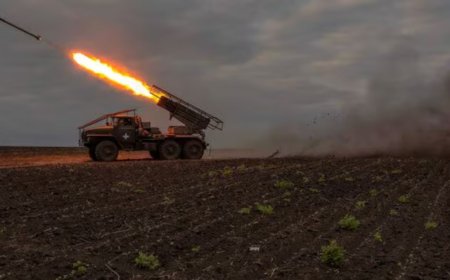Why even China’s top graduates are struggling to find jobs
China’s elite university graduates are facing record unemployment amid a slowing economy, tech sector retreat, and policy uncertainty. Learn what's driving this crisis and what it means for investors.

Beijing, July 14, 2025 — As China’s economy continues to navigate its post-pandemic transformation, a surprising and concerning trend has emerged: even top university graduates from China’s elite institutions are finding it difficult to secure employment. Once guaranteed pathways to stable, high-paying careers, degrees from prestigious universities like Tsinghua, Peking, and Fudan are no longer surefire tickets to white-collar success.
A combination of a slowing economy, weakening private sector demand, regulatory overreach, and structural shifts in China’s labor market has led to what analysts are calling a “white-collar employment crisis.”
Record Graduate Unemployment Despite Top Credentials
According to recent data from China’s National Bureau of Statistics, the unemployment rate for youth aged 16–24 stood at an alarming 15.6% in June 2025, following a brief pause in reporting last year due to criticism over methodology. This figure, while lower than the July 2023 peak of over 21%, is still troubling considering the sheer volume of new graduates entering the workforce—an estimated 11.7 million this year alone.
Many of these graduates are from “Double First-Class” universities, part of an elite state-sponsored initiative to elevate Chinese higher education. But despite years of rigorous education, students are graduating into an economy that no longer guarantees them a suitable job, even in sectors once considered booming.
“The mismatch between graduate aspirations and market realities is widening,” said Chen Xing, a labor economist at Renmin University. “China’s economy is no longer creating the kind of jobs that match the skills of its most educated workers.”
Tech and Property Sectors No Longer Absorbing Talent
China’s once-thriving tech and property sectors, which previously soaked up vast numbers of fresh talent, have undergone drastic contractions.
The crackdown on internet giants like Alibaba, Tencent, and Didi from 2021–2022 led to a significant retreat in private hiring. While the government has since softened its tone, the chilling effect remains. Many firms remain cautious about hiring amid unclear regulatory direction and subdued consumer demand.
The real estate sector—long a backbone of urban employment—continues to reel from the Evergrande crisis and broader deleveraging policies. With construction slowing and investment falling, demand for engineers, project managers, and finance professionals has dried up.
“The tech sector was once the dream for many grads. Now, offers are fewer, salaries are flat or declining, and job security is questionable,” said Linda Zhou, a Shanghai-based HR consultant.
Shrinking Private Sector, Expanding Public Aspirations
In response, many students are now flocking toward government jobs, known in China as "iron rice bowls", for their stability and benefits. Applications for the civil service exam reached a record 3 million this year—despite only about 100,000 positions available.
Others are seeking jobs in state-owned enterprises (SOEs) or pursuing postgraduate studies, not necessarily out of passion but due to limited alternatives.
“A decade ago, few top-tier graduates would have considered a county-level SOE role,” said David Yao, head of education research at Trivium China. “Now, it’s seen as a safe haven.”
Structural Issues and a Shift in Growth Model
China’s employment dilemma goes beyond short-term cycles. The country is shifting from an investment-led model to a consumption-driven and innovation-based one. However, this transition is proving slow and uneven.
Small and medium-sized private enterprises—the primary engines of white-collar job creation—face challenges in accessing credit, dealing with compliance, and navigating regulatory ambiguity.
Furthermore, some industries are automating rapidly. Sectors such as manufacturing, logistics, and customer service increasingly rely on AI and robotics, displacing entry-level jobs traditionally filled by new graduates.
Investor Implications and Market Outlook
From an investor perspective, the graduate job crunch is a signal of deeper economic frailties.
Domestic consumption may remain muted if wage growth and employment prospects stay subdued. Analysts warn that China's “human capital dividend” could erode if top talent is underutilized.
“China risks a brain drain—not across borders, but into irrelevance,” noted Julian Evans, Asia-Pacific economist at Capital Frontier Research. “If graduates can’t find meaningful work, it weakens innovation and productivity gains in the long run.”
That said, sectors aligned with national priorities—like green tech, semiconductors, AI, and biotech—still show promise. These are areas where the government continues to channel subsidies and support, and where long-term job creation could emerge.
The Chinese stock market remains volatile, with CSI 300 hovering near its 18-month low. Analysts expect sentiment to remain cautious until clearer signals emerge regarding economic stimulus or labor market reforms.
What’s Next: Policy, Patience, or Pain?
China’s policymakers face a difficult balancing act. Stimulating employment without overheating the economy or reversing hard-fought structural reforms will require precision.
The Ministry of Education and Ministry of Human Resources have unveiled a number of short-term initiatives, including internships, vocational training, and incentives for private firms to hire graduates. But experts believe systemic reforms are needed to truly revitalize the job market.
“We need to rethink the education-to-employment pipeline,” said Professor Liu Zhen of Beijing Normal University. “This includes better alignment between university curricula and actual labor market needs.”
Until then, the stark reality remains: even China’s best and brightest are struggling to secure their future in a shifting economy.
What's Your Reaction?
 Like
0
Like
0
 Dislike
0
Dislike
0
 Love
0
Love
0
 Funny
0
Funny
0
 Angry
0
Angry
0
 Sad
0
Sad
0
 Wow
0
Wow
0












































































